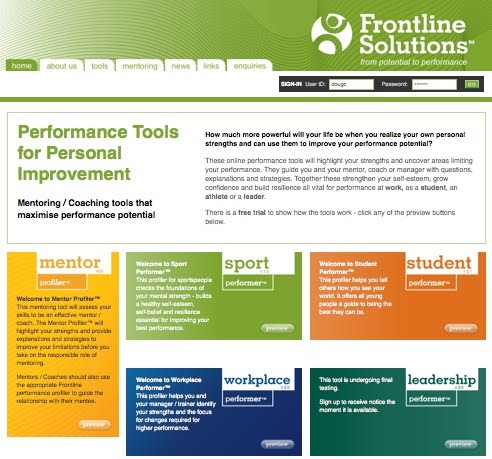Coaches are increasingly under pressure to ensure performmance improvement - so it makes sense that they too have their own support systems. Unless you are the ultimate - the "Perfect Coach" - you should also have your own mentor (coach). At Frontline Solutions, we always insist coaches and mentors have at least a supervisor or coach/mentor when we are setting up any serious managed mentoring or coaching support programmes.To leave a coach alone and responsible for many others - especially in high performance areas is unwise.
My colleague, Dr Lewis McGill has released a book "The Coach Mentor Programme" which explains how a mentor can help improve the coach by observing and identifying examples of 'good' and 'unsuccessful' methods and activities. While this book was aimed at the Sport's Coach, the message is universal for anyone in a coaching role. Warning - you need to be careful when introducing something more into the overcrowded schedule of a busy coach ( especially if they are a volunteer!!). Mentoring can be a way to achieve improvement alongside all those other commitments. From a coach's point, is often difficult to make changes alone. But mentoring as a process allows for a change of behaviour with the support of another person - but on the coach's own terms. This is more likely to succeed. Mentoring provides a non-threatening and supportive process whereby an individual can learn about their present levels of ability and competence and explore ways of improving. Coaches and mentors need their own support people too. You can see more about the tools we use to assist mentors and coaches at www.mentoring.net.nz

